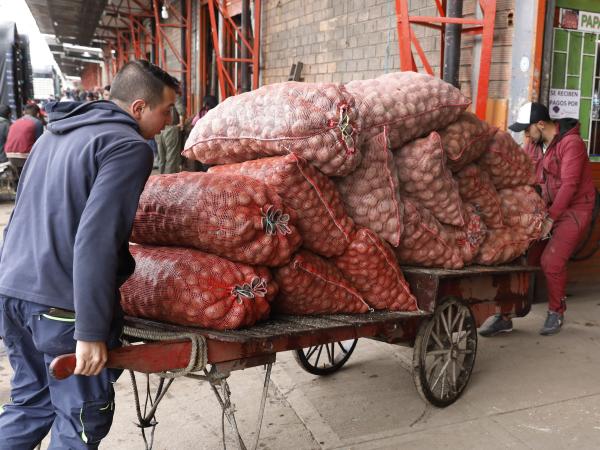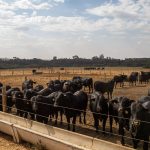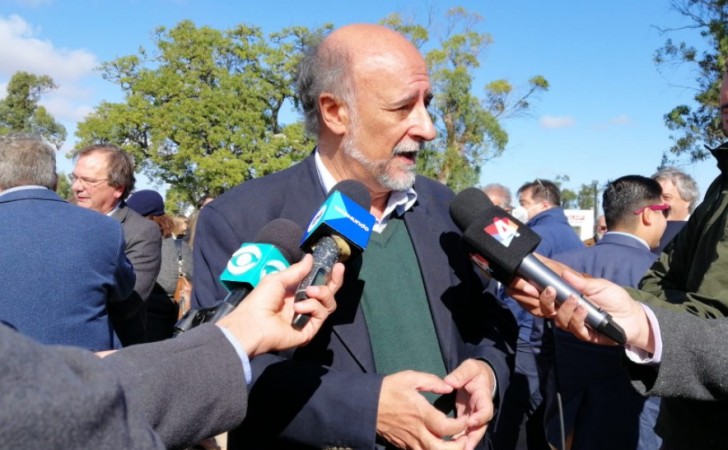Much of the inflationary phenomenon that is being experienced at the national level has to do with the global situation of high prices in inputs, as well as problems in supply chains. Hence, the government has been promoting several measures to mitigate inflation, which in March already reached 8.53% in Colombia.
(Double-digit inflation is already hitting poorer households.)
However, the effect of these is still incipient, or has not even begun to be transmitted to prices.
On the one hand, the Banco de la República began a monetary policy normalization process in September, and has increased the interest rate by 3.25 percentage points in seven months, to a level of 5%. On the other hand, The Government announced a shock plan in February, which included lowering tariffs for importing agricultural inputs, to an increase in the coverage of the Solidarity Income program to another million households.
With Decree 307 of March 3, a 0% tariff was established for six months for 165 goods that are imported, including food, beverages, flour, cereals, seeds for agricultural products, malt extract, protein hydrolysates, food supplements, processed oat grains, toilet paper, and some tools, among others. To this is added that this week a 0% tariff was announced for 12 months for another 39 agricultural inputs.
LATE EFFECT
For Sergio Olarte, chief economist at Scotiabank Colpatria, “The reduction in tariffs on these items should help import costs to fall, but there may be producers who already have a stock of inputs, of fertilizers, and until they no longer need to import, that reduction will not be seen. of costs”.
Olarte also stressed that the recent appreciation of the exchange rate may also help, since with a cheaper dollar it is less expensive for farmers to bring inputs from abroad. “We believe that this effect can begin to be seen by June or July of this year,” said.
The economist mentioned that another indirect measure that has mitigated inflation is that Colombia is one of the few countries that has not raised gasoline, and has continued to subsidize.
Regarding monetary policy, he maintained that this measure is already being seen in the banks, “But it has not caused consumption to fall significantly. It could be expected for the second semester, or even for next year, since the transmission of the policy lasts between 12 and 18 months”.
(This is how inflation behaved in March by cities).
Last month, Corficolombiana also presented an analysis of the measures adopted by the government to mitigate the impact of inflation. The entity highlighted as at least seven products (potato, beef and pork, chicken, eggs, milk and edible oils) explain 70% of the average annual variation of the last 12 months.
However, after considering the products covered by the tariff response (Decree 307), the report concluded that “This first component of measures would have a very limited scope in smoothing out food inflation,” because the most demanded fertilizers for national production (urea, DAP and KCL) already had a 0% tariff.
It was also questioned that the transmission channel from the lower price of inputs to the price of the final good could be slow or even not materialize, given that the producers do not immediately transfer the reduction in their costs to the final good, since the crop “requires of advance planning.
FOCUSED MEASURES
The president of the Society of Farmers of Colombia (SAC), Jorge Enrique Bedoya, assured that this reduction in tariffs “It has an impact, but it is minimal, because the vast majority of products, and due to the weight they had by import volume, no longer had tariffs” and it will not be until the new harvests of the semi-annual crops begin to come out that this effect could be seen.
Bedoya also mentioned that the exchange rate continues to play against the producers. “The problem with inflation is that there is less supply and greater demand, but to compensate, a greater production is needed, and as long as the costs of inputs are high, it is not enough for producers to use the same levels of production. fertilizer, or even to sow, and that implies that less harvest comes out”, questioned.
(Inflation in March reached 8.53%, the highest since July 2016).
On the contrary, he said that what farmers want is to stimulate production, which is why the SAC sent a letter this week to the Ministry of Agriculture, recommended alternatives such as the additional strengthening of economic transfers for the purchase of food to consumers in a more vulnerable condition, monitoring of marketing channels to avoid speculative phenomena and diplomatic and commercial management to ensure supply of inputs and raw materials, among others.
THE INCREASE IN PRICES FOR AGRICULTURAL PRODUCERS
This week the Dane presented the results of the Producer Price Index (IPP), which shows that producers’ costs have risen 32.8% compared to last year, and in the case of the agricultural sector the rise is in 46.4%.
“The IPP shows us how the inputs for national agricultural production are becoming more expensive. In the case of fertilizers and pesticides, the annual inflation in producer prices reaches 28.4% in March, almost 2.8 times the annual inflation that we had with a cut to December 2022 “explained the director of Dane, Juan Daniel Oviedo.
The price of these inputs, as well as insecticides, continue to rise, but according to Oviedo, others such as soybeans and preparations used in animal feed are seeing a correction in their prices.
LAURA LUCIA BECERRA ELEJALDE


















